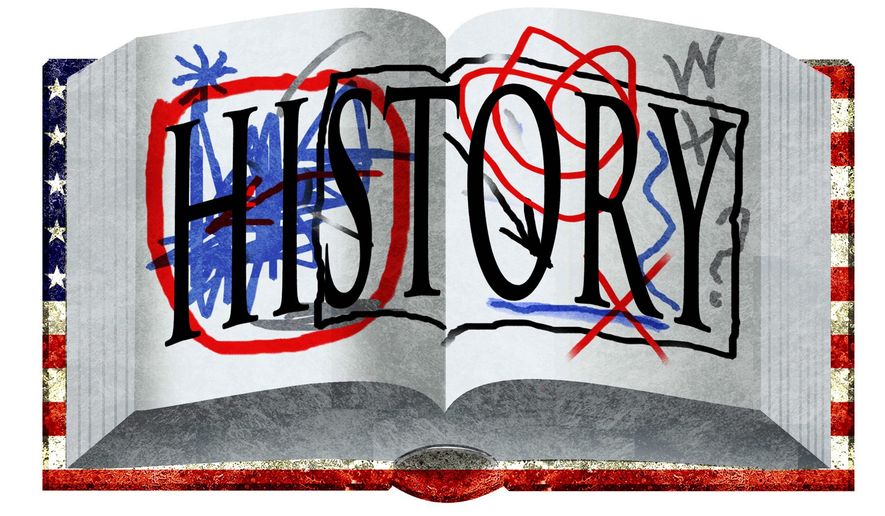OPINION:
The 18th Century Irish statesman Edmund Burk once said, “In history, a great volume is unrolled for our instruction, drawing the materials of future wisdom from the past errors and infirmities of mankind.” He concluded, “History [rightly] understood, and better employed will teach a civilized posterity to abhor the misdeeds of [past] ages.”
George Santayana simplified Mr. Burk’s admonition. “Those who cannot remember the past,” he said, “are condemned to repeat it.”
Winston Churchill paraphrased Mr. Santayana as he stood before the House of Commons (and, in fact, the entire civilized world). “Those who fail to learn from history are condemned to repeat it,” he declared.
In other words, as Dr. David McKenna (an old mentor of mine) once said: “The best predictor of future behavior is always past behavior.” If you want to know the likely outcome, always look to the past. Put simply - The lessons of history matter.
Has it ever dawned on you that much of today’s news is little more than a déjà vu moment? Do you feel as if every time you read the paper or listen to a podcast, you somehow have “been here before?” Our government’s infatuation with power. Our youth’s fixation on self. Our culture’s indulgence in sex. Our country’s trust in its weapons. Our teachers’ distrust our Constitution. Our president’s rush to print more money. The racism, the narcissism, the misogyny, the immorality. Does it all sound familiar? Do you feel as if we have already read this book?
Well, maybe we have. Nearly 3,000 years ago, two men named Isaiah and Amos penned some words that have stood the test of time. Over and over again, history has proven their warnings true. Perhaps in keeping with the promptings of Burk, Santayana, Churchill, and my old friend, Dr. McKenna, we’d be wise to reconsider their warnings.
“Thus, says the Lord God: An adversary shall surround the land and bring down your defenses from you,” shouted Amos. “Your strong holds shall be plundered… Woe to those who are at ease… and those who feel secure… I abhor the pride… The great house shall be struck down into fragments… Behold, I am setting a plum line in the midst of my people… The eyes of the Lord God are upon the sinful kingdom, and he will destroy it from the surface of the ground….” (Amos, eighth century BC)
“[The] children I have reared have rebelled against me,” added the prophet, Isaiah. “[They are] a sinful nation, a people laden with iniquity… Your princes are rebels and the companions of thieves. Everyone loves a bribe and runs for gifts. Therefore, I will turn my hand against you… [and] take away [your] support and supply… The people will oppress one another… The youth will be insolent… The look on their faces bears witness against them; they proclaim their sin like Sodom; they do not hide it. Woe to them! For they have brought evil on themselves… Woe to those who are wise in their own eyes and shrewd in their own sight! The Lord raises the adversaries… He will raise a signal for the nations far away… Behold, quickly, speedily they come! [C]ities lie in waste… The people did not turn to him… So, the Lord cut off head and tail; for those who guide the people have been leading them astray… For everyone is godless… and everyone speaks folly.” (Isaiah, circa 740 BC)
In the 1940s, C. S. Lewis lamented what he called “chronological snobbery.” He defined it as “the uncritical acceptance of the intellectual climate common to our own age and the assumption that whatever has gone out of date is on that account discredited.” A few years later, J. I. Packer described all this as the spirit of our age, which holds that “only what is recent is decent” and that all the old ideas should be discounted as bad if for no reason other than they are all old.
Maybe this week, as we read the news - news laden with stuff we used to call sin - we’d all be wise to consider these old words that have been around for a while. Maybe we’d all do well to set aside our historical hubris and listen to what history has to teach us. Maybe, if the best predictor of our future is the past, we’d be fools not to.
“Come now, let us reason… Cease to do evil; learn to do good… If you are willing and obedient, you shall eat the good of the land; but if you refuse and rebel, you shall be eaten by the sword.” — Isaiah
• Everett Piper (dreverettpiper.com, @dreverettpiper), a columnist for The Washington Times, is a former university president and radio host.




Please read our comment policy before commenting.